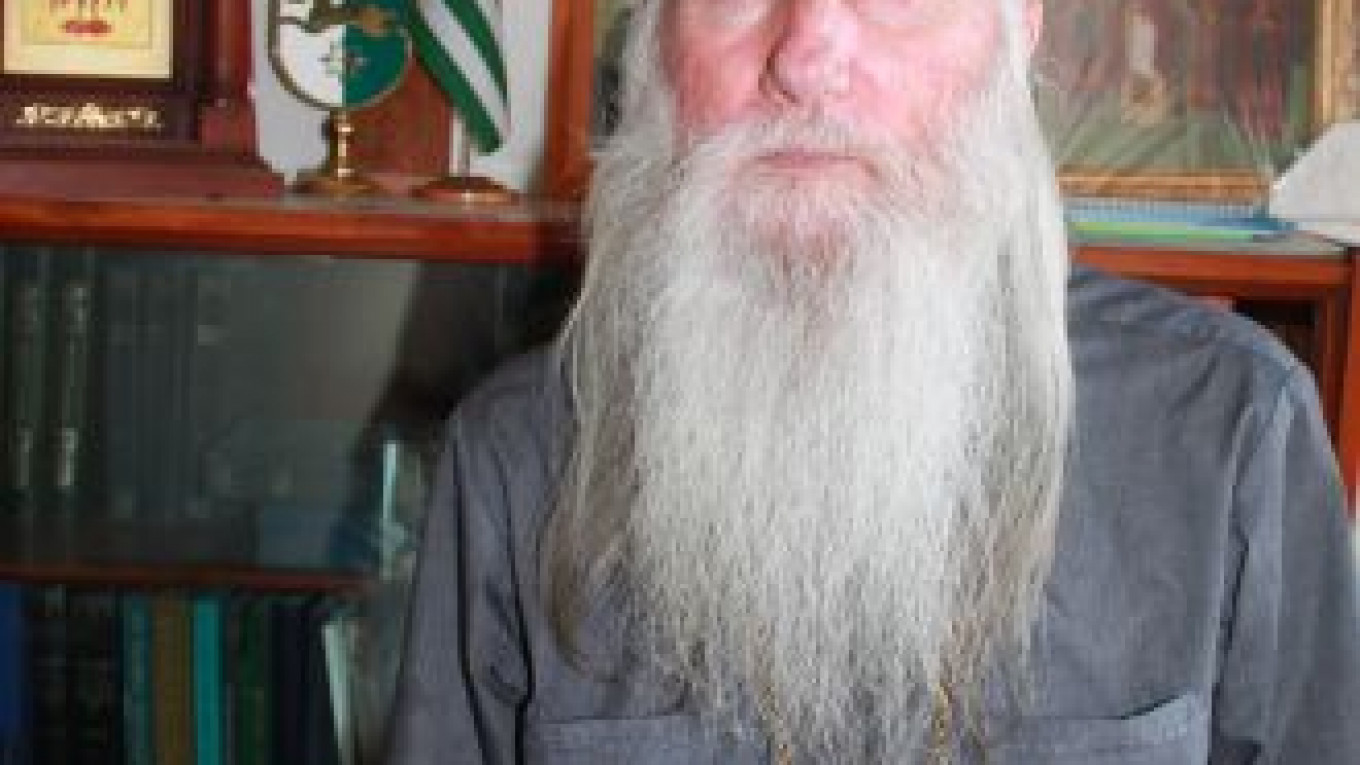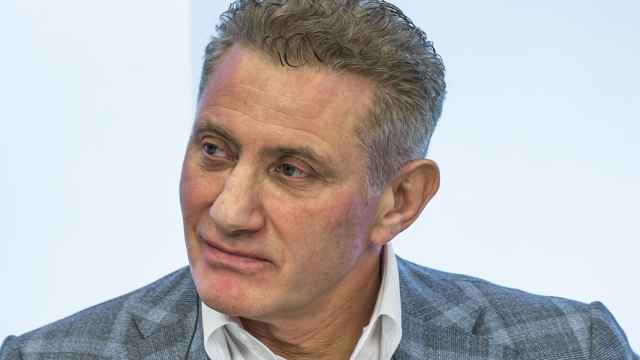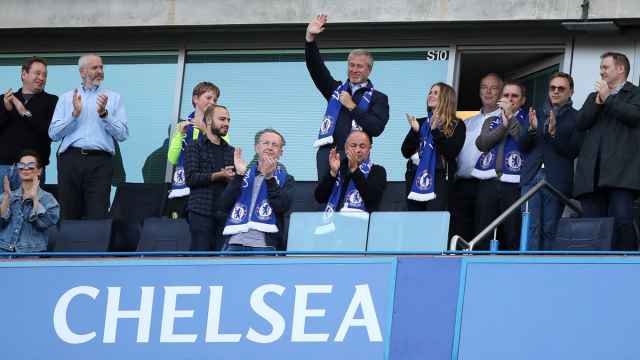NOVY AFON — Nestled in the foothills of the Caucasus and overlooking the Black Sea, the Novy Afon monastery's golden-topped cupolas shimmer from afar from between evergreen cypresses, attracting droves of mainly Russian visitors on a hot summer day.
For the Georgian breakaway republic of Abkhazia, Novy Afon, or New Athos, is clearly the top tourist attraction and a prime object of national heritage.
But never mind its holiness. The St. Simon Monastery, founded in the 19th century by Russian monks from Mount Athos, Greece, is embroiled in a bitter controversy that has effectively created the latest schism in the Eastern Church, already riddled with competing churches in Ukraine, Moldova and Macedonia.
The rift deepened on May 15, when an assembly of clergy and laymen gathered at Novy Afon and proclaimed a holy metropolis of Abkhazia, defying the existing Eparchy of Sukhumi.
As a result, tiny Abkhazia, which already has a hard time finding recognition as an independent state, now boasts two Christian congregations both of which say they want to become an autocephalous Orthodox Church.
The Novy Afon assembly, which was attended by some 1,500 people in May, was called and chaired by Father Dorofei Dbar, 39, who together with a handful of young Abkhaz clerics is leading a movement to emancipate local Orthodoxy from Russian influence, which has been paramount in Abkhazia since the region seceded from Georgia after a secessionist war in 1992 and 1993.
The conflict is sending tremors to Moscow, Tbilisi and the rest of the Orthodox world because under church law Abkhazia is still part of Georgia — a position that somewhat paradoxically is upheld by the Moscow Patriarchate and was officially confirmed in July by Patriarch Kirill during a meeting with his Georgian counterpart, Ilya II, in Kiev.
Father Dorofei, a soft-spoken monk with dark eyes and a wooly black beard, is confident that the only path to Abkhaz independence — at least for the church — leads neither through Moscow nor Tbilisi.
"The Georgian Church cannot deal with us because of the war, and the Russian Church cannot do it because it has no right," he said during a recent interview over thick Turkish coffee and mango juice in his spacious office in the monastery.
Dorofei and his supporters want the ecumenical patriarch in Istanbul to oversee what they call the resurrection of the Abkhaz church. They see their main obstacle to achieving this in Moscow — even though both Dorofei and his deputy, Father Andrei Ampar, studied at the city's Orthodox Seminary.
"We believe that it is only possible to solve our problem by attracting the attention of all Orthodox churches — especially the ecumenical patriarch," he said.
Moscow's answer to the assembly came swiftly. On May 26, Bishop Tikhon of Maikop and Adygea, the Russian diocese that ordained him, banned Dorofei and Father Andrei from conducting church rites for one year.
The rebel monks of Novy Afon say they want an independent Abkhaz church that uses the Abkhaz language in liturgy and is not subjected to Moscow or any other patriarchate.
Brief History of Religion in Abkhazia
Local legend has it that Christianity was brought to what is modern-day Abkhazia by Apostle Simon the Zealot, one of Jesus' 12 disciples. The Black Sea region remained under Byzantine and Georgian influence until the 16th century.
Many Abkhaz people adopted Islam under subsequent Ottoman rule but, following Russia's conquest in 1864, many of the Muslim tribes emigrated to the Ottoman Empire. Under tsarist rule, Christianity grew, not least because of the advent of Georgian and Armenian settlers.
Today there are no official figures for religious affiliation among Abkhazia's 200,000 residents, but experts estimate that more than two-thirds are Christian and some 20 percent are Muslim. Father Dorofei Dbar of the Novy Afon Monastery says only three of the 20 Orthodox priests in Abkhazia support his metropolis, while the rest have sided with the Sukhumi Eparchy.
— Nikolaus von Twickel
Their opponents, however, say they want the same. "Our church is apostolic. It traces it roots to Simon the Zealot [one of the 12 apostles]. It should be an independent Orthodox Church," said Father Vissarion Apliaa of the Sukhumi Eparchy.
The difference, both say, lies in how to achieve that goal. "They want to do it with the Greeks. But as a rule you have to go to your neighbors. Since we cannot go to Georgia, we must appeal to Russia," Vissarion said in an interview in his tiny office behind Sukhumi's humble Orthodox cathedral.
An imposing cleric who looks older than his 64 years, Vissarion has been effectively running the Sukhumi Eparchy since 1992. He is barred from becoming a bishop because he is married, and experts say his authority rests mainly on his staunch support for the Abkhaz side during the secessionist war.
Although he was ordained by Ilya II of Georgia in 1989, Vissarion has been a vocal advocate for making the Abkhaz Church independent. In 2009, he declared the Sukhumi Eparchy as separate from the Georgian Church — a move that was not recognized by Tbilisi or Moscow.
Called simply "batyushka" by his parishioners, Vissarion has long been rumored to have links to organized crime. In October 2009, Vissarion flew to Moscow to conduct the funeral service for Vyacheslav Ivankov, a legendary mobster also known as Yaponchik.
In the interview, Vissarion called the rival metropolis of Abkhazia "pure fiction" and accused Dorofei and his colleagues of defying church orders. "They are not only violating the rules but they are also doing it consciously and openly," he complained.
But Dorofei said he decided to defy the ban after talks in Moscow proved futile.
Instead, he suggested an open competition with the Eparchy to install the first bishop of an independent Abkhaz church. "Let us both vie for this — and see who gets the appointment first," he said.
Dorofei's vision is to make Abkhazia a hub for spreading Christianity in the western Caucasus.
He said an independent Abkhaz church would have a moral advantage over the Russian church if it employs Caucasus natives instead of ethnic Slavs to spread the gospel.
"Look at the North Caucasus Eparchies — they are all headed by ethnic Russians. No wonder they are struggling against the spread of Islamism," he said.
Abkhazia's president-elect, Alexander Ankvab, has said he is strongly in favor of an independent church. "Nothing else is acceptable," he told a reporter at the sidelines of a rally prior to the Aug. 26 presidential election. Ankvab added that he hoped for a compromise. "We need to find common ground," he said.
But religion experts say the impasse will be tough to solve.
"By backing the Georgian church, Kirill made a clear and harsh decision to defy the schismatics," said Roman Lunkin, a senior researcher with the Moscow-based Institute of Religion and Law.
But he acknowledged that while the official authority might lie in Tbilisi, the Georgians will not have any influence on the situation in Abkhazia as long as the region is governed by the Moscow-backed separatist government.
Andrei Kurayev, an influential theologian close to the Moscow Patriarchate who recently started a teaching job at Sukhumi's Abkhaz State University, said the current situation could well last for many years.
Abkhaz and Russian media have speculated that the conflict is really about property and that Moscow is eyeing the wealthy Novy Afon monastery — which is officially owned by the Abkhaz state but has been refurbished over the past years with significant financial aid from Russia, including from Moscow's City Hall.
But Father Dorofei dismissed fears that he could be evicted, arguing that much of Abkhazia's political elite supported him and he had strong backing among the local population and law enforcement officials.
"And many of them fought in the war," he added with a smile.
A Message from The Moscow Times:
Dear readers,
We are facing unprecedented challenges. Russia's Prosecutor General's Office has designated The Moscow Times as an "undesirable" organization, criminalizing our work and putting our staff at risk of prosecution. This follows our earlier unjust labeling as a "foreign agent."
These actions are direct attempts to silence independent journalism in Russia. The authorities claim our work "discredits the decisions of the Russian leadership." We see things differently: we strive to provide accurate, unbiased reporting on Russia.
We, the journalists of The Moscow Times, refuse to be silenced. But to continue our work, we need your help.
Your support, no matter how small, makes a world of difference. If you can, please support us monthly starting from just $2. It's quick to set up, and every contribution makes a significant impact.
By supporting The Moscow Times, you're defending open, independent journalism in the face of repression. Thank you for standing with us.
Remind me later.







